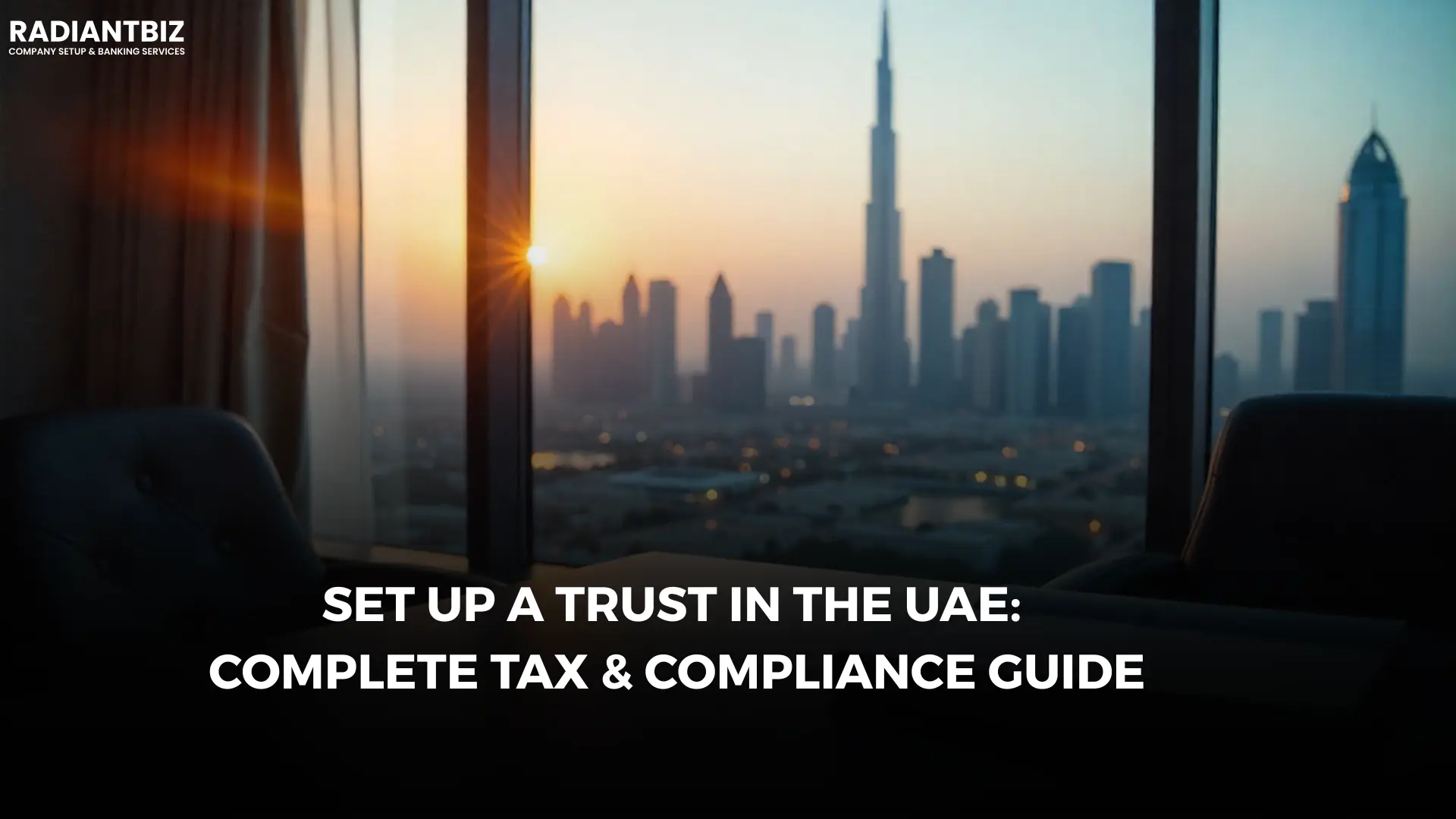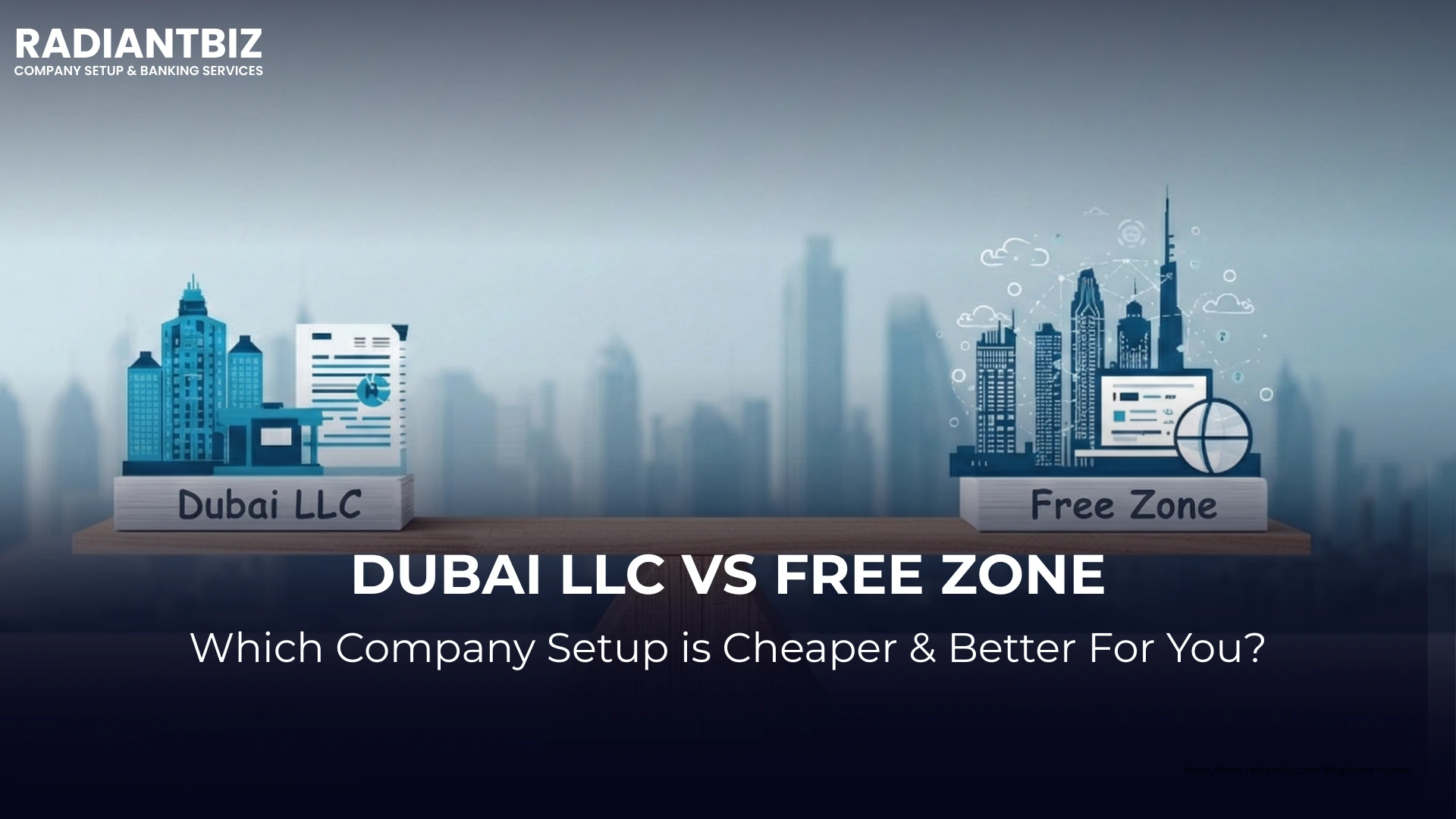What Is a Trust and How Trusts Are Taxed in the UAE


Table of Contents
What is a trust?
A trust is a legal arrangement where one party, the "grantor," transfers assets to another party, the "trustee," for the benefit of specific individuals or purposes, the "beneficiaries." It's a mechanism to safeguard and manage assets, often used for estate planning, charitable giving, or protecting assets. The trustee holds and administers the assets according to the terms set by the grantor, ensuring the beneficiaries' financial security and fulfilling the grantor's intentions. Trusts offer flexibility, privacy, and can mitigate estate taxes, making them an essential component of comprehensive wealth management services in dubai. They're vital tools for managing wealth and providing for loved ones or philanthropic causes.
When can trusts be useful?
Trusts can be highly valuable in various situations. They are often used for estate planning, ensuring a smooth transfer of assets to beneficiaries after the grantor's passing while potentially reducing estate taxes. Trusts can safeguard assets, protect them from creditors, and offer privacy. They're also instrumental in providing for loved ones with special needs or minor children. Trusts can facilitate charitable giving and grant the grantor control over how their assets are distributed. Their versatility makes trusts an essential tool for managing wealth and realizing various financial and personal goals.
How is a Trust Taxed in UAE?
In the United Arab Emirates (UAE), trusts offer an effective wealth management and estate-planning tool, and the tax treatment of trusts is an essential consideration. The UAE does not impose income, capital gains, or wealth taxes at the federal level, which makes it an attractive destination for establishing trusts. Trusts in the UAE can be structured as discretionary or non-discretionary trusts, with different tax implications. Non-discretionary trusts, where beneficiaries have fixed entitlements, can face taxation when the assets are transferred to the trust, subject to relevant transfer taxes. However, discretionary trusts, more commonly used, do not typically face taxation in the UAE, as the income earned and capital gains within the trust structure are not subject to taxes. Furthermore, distributions to non-resident beneficiaries do not incur UAE taxation. It is essential to engage with professional advisors or specialists offering corporate tax services in Dubai to understand and navigate the specific tax implications and compliance requirements associated with trusts in the UAE, as these can vary depending on the emirate in which the trust is established and the individual circumstances of the trust and its beneficiaries. The UAE’s favorable tax regime regarding trusts offers significant advantages for effective wealth preservation and succession planning.
How trusts are regulated in UAE?
Trusts in the United Arab Emirates (UAE) are regulated by a combination of federal and local laws, primarily governed by the Federal Law No. 4 of 2020 concerning trusts and the Civil Transactions Law. The regulations provide a robust legal framework for establishing and managing trusts.To create a trust in the UAE, you typically need to adhere to specific procedures, which may vary among the emirates. Trustees must ensure compliance with the trust's terms and legal requirements. Importantly, UAE's trust regulations enforce a high standard of professional conduct among trustees and require them to act in the best interests of beneficiaries.Regulations also cover the disclosure of trust information, particularly to the relevant authorities and beneficiaries, ensuring transparency. They may also address issues like the duration of the trust, removal and replacement of trustees, and the rights of beneficiaries.UAE's legal environment for trusts is evolving, and it's crucial to engage experienced legal and financial professionals who are well-versed in local regulations to establish and manage trusts effectively within the UAE. The country's robust regulatory framework ensures that trusts are a secure and reliable tool for wealth management and estate planning in the region.
How to establish trust under the UAE Trust Law
1. Choose the Appropriate Trust Type: Determine the kind of trust that suits your objectives, such as discretionary, non-discretionary, or charitable trusts.
2. Select Trust Parties: Identify the grantor (settlor), trustee, and beneficiaries. The trustee should be a licensed entity, while the grantor can be a resident or non-resident.
3. Draft the Trust Deed: Create a legal document outlining the trust's terms, specifying the assets to be placed in the trust, and describing the beneficiaries' rights and distribution instructions.
4. Establish the Trust: Submit the trust deed to the relevant regulatory authority in the specific emirate where the trust is created. Compliance and setup requirements may differ between emirates.
5. Appoint a Protector: Optionally, you can appoint a protector to oversee the trustee's actions and ensure they adhere to the trust's objectives.
6. Fund the Trust: Transfer the assets or properties into the trust according to the trust deed's provisions.
7. Comply with Reporting: Fulfill any reporting and disclosure requirements as stipulated by UAE law.
8. Management and Administration: The trustee will manage and administer the trust assets in accordance with the trust deed.
9. Ongoing Compliance: Ensure ongoing compliance with UAE Trust Law, including adherence to regulations concerning tax, reporting, and the distribution of assets to beneficiaries.
Requirements for setting up a trust in Dubai
1. Choose Trust Type:
Determine the type of trust, such as discretionary, non-discretionary, or charitable, based on your goals.
2. Select Trust Parties:
Identify the grantor (settlor), trustee, beneficiaries, and potentially a protector.
3. Draft Trust Deed:
Prepare a comprehensive trust deed outlining the trust's objectives, asset details, and beneficiaries' rights.
4. Appoint a Licensed Trustee:
Select a licensed trustee entity that complies with UAE regulations.
5. Establish the Trust:
Submit the trust deed and related documentation to the relevant regulatory authority for approval.
6. Fund the Trust:
Transfer assets, properties, or investments into the trust in accordance with the trust deed.
7. Compliance and Reporting:
Comply with UAE laws, including tax and reporting requirements.
8. Management and Administration:
The trustee will manage and administer trust assets as stipulated in the trust deed.
9. Ongoing Compliance:
Continuously ensure adherence to UAE regulations for trust operations, distributions, and reporting.
Why you should set up a trust in Dubai
1. Asset Protection: Dubai trusts offer robust asset protection by keeping your assets separate from personal liabilities.
2. Estate Planning: Establishing a trust allows you to efficiently manage the distribution of your assets to beneficiaries.
3. Confidentiality: Trusts in Dubai provide privacy as they are not publicly disclosed, ensuring discretion.
4. Tax Benefits: Dubai offers favorable tax regulations with no capital gains, income, or estate taxes on trusts.5. International Reach: Dubai's strategic location makes it a gateway to global markets, facilitating international investments.
6. Shariah-Compliant: Dubai offers Shariah-compliant trusts, catering to Islamic principles.
7. Wealth Preservation: Trusts help preserve and grow family wealth for future generations.
8. Professional Services: A wide range of legal and financial experts are available to assist in trust setup and management.
9. Business Expansion: Dubai's thriving business environment can support trust-related ventures and investments.
10. Stability: Dubai's political and economic stability enhances the security of your trust.
What happens if a Non-Muslim dies intestate in the UAE?
1. Distribution by Law: If a Non-Muslim resident in the UAE dies without a will (intestate), the UAE's legal system will determine the distribution of their assets.
2. UAE Laws Apply: Shariah law may not be applicable to non-Muslims, but UAE civil and commercial laws regulate intestate succession for expatriates.
3. Heirs Determined: The deceased's assets will be distributed among their legal heirs, typically following a predetermined hierarchy, which may include the spouse, children, and other blood relatives.
4. Limited Control: Without a will, the deceased has no say in how their assets are divided, and the process might not align with their personal wishes.
5. Time-Consuming: The legal procedure for intestate succession can be lengthy and may involve complexities if heirs are from different nationalities.
6. Legal Assistance: Engaging legal counsel is advisable to navigate the intricacies of intestate succession and ensure a smoother process.
7. Importance of a Will: Writing a will is highly recommended for non-Muslim expatriates in the UAE to have control over asset distribution and avoid potential disputes.
How much does it cost to make a Will in Dubai?
1. Simple Wills: For straightforward wills with uncomplicated assets, the cost may range from AED 2,000 to AED 5,000, often including legal fees.
2. Complex Wills: If you have a complex estate involving multiple assets, businesses, or international holdings, the cost could be higher, potentially ranging from AED 5,000 to AED 10,000 or more.
3. Legal Consultation: Initial consultation fees can vary but are typically around AED 1,000 to AED 2,000.
4. Notary Fees: When the will is finalized, there will be notary and certification fees, typically ranging from AED 500 to AED 1,000.
5. Translation Services: If your will is in a language other than Arabic, you may need to budget for translation services, which can cost AED 500 or more.
How to establish a trust in Dubai (DIFC)?
1. Plan and Define: Clearly define the objectives and assets to be placed in the trust, as this will determine the trust's structure and terms.
2. Choose Trustees: Select trustworthy individuals or corporate entities to act as trustees. They will manage and administer the trust as per your instructions.
3. Draft the Trust Deed: Create a detailed trust deed outlining the trust's purpose, beneficiaries, and terms. Legal advice is crucial in this step.
4. Establish with DIFC: If the trust is intended for asset protection or succession planning, consider setting it up through the DIFC Companies Office.
5. Comply with Regulations: Ensure that your trust adheres to the DIFC's trust law and relevant international standards for transparency and compliance.
6. Fund the Trust: Transfer the chosen assets into the trust, following legal and financial procedures.
7. Management and Reporting: Trustees must manage the assets and provide regular reports to beneficiaries, as stipulated in the trust deed.
8. Ongoing Compliance: Stay updated on changing regulations and ensure ongoing compliance with DIFC trust laws.
9. Seek Legal Counsel: Consult with legal experts experienced in DIFC trusts to navigate the complexities of the process.
10. Review and Update: Periodically review and update the trust to align with changing circumstances or objectives.
Conclusion
Trusts in the UAE provide a powerful, flexible, and tax-efficient structure for safeguarding wealth, planning estates, and protecting assets whether you're aiming for privacy, smooth transfer to heirs, or long-term legacy planning. With UAE’s favorable tax regime (no income, capital gains, or wealth taxes for most trusts), trusts are especially attractive for individuals and families with international assets. However, the right setup choosing between discretionary or non-discretionary trusts, complying with local regulations, and properly administering the trust deed - is key to maximizing benefits and avoiding potential pitfalls.
For these reasons, partnering with a seasoned business setup consultant in Dubai is not just helpful but often essential they bring the legal, tax, and regulatory know-how to ensure your trust structure works optimally and stays compliant.



2.png)




.avif)